
Main Page
Alphabetical Menu
Chronological Menu
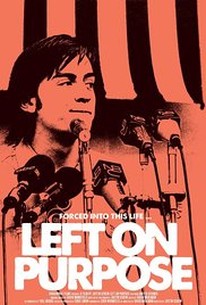 In the doc Left on Purpose, filmmaker Justin Schein befriends Mayer Vishner, a depressed, political activist who announces that he plans on killing himself. When Schein visits his apartment, you notice how messy it is and how unkempt Vishner looks, but there's much more to him than meets the eye. He was once been part of the 1960's anti-war movement known as the Yippies, and he still unafraid to speak his mind years later, i.e. about how the Greenwich Village has been essentially taken over by NYU and that if it were anything like it was in the 60's, you'd be seeing "Fuck NYU" written throughout the Village. Schein and co-director David Mehlman bring up Vishner's colorful past, but they also show his current battles with depression and alcoholism. Therapy and medication don't appear to help him much. The closest he comes to showing signs of happiness is when he gardens with young women who have volunteered to help him garden. He still wants to die, though. Yes, Left on Purpose goes into dark territory that doesn't make it family-friendly, but the filmmakers should be commended for raising awareness about an important mental illness that many people suffer from. The footage of Vishner in his apartment makes one wonder "Should I be watching this??" after a while, although it is intimate and revealing. Schein crosses a boundary when he convinces him to put let him put camera in his bedroom to observe him when he's not filming him. Even though Vishner consents to it, it still feels a bit invasive, unless they were best friends since childhood which isn't the case here. Watching Vishner at his lowest points in life over and over also feel somewhat tedious and exhausting. Is Left on Purpose fundamentally about Mayer Vishner's life? Or is about the dangerous whirlpool of depression and the right of ending one's own life? All of those worthy topics, but to combine them all in one doc make it feel bit unfocused. Schein and Mehlman scope is too narrow to provide much insight on depression or suicide. A little distance from Vishner or pointing the camera at others suffering depression would have broadened the scope and given you a better glimpse at the bigger picture of depression and how others cope with it. It would have been interesting to find out more about the program that sent those young women to help Vishner with his gardening. Perhaps there are others who have escaped depression through gardening or something similar. Even though Left on Purpose squanders many opportunities to delve into its intriguing topics, that doesn't stop it from becoming a tremendously moving and heartbreaking doc. FilmBuff opens Left on Purpose at Cinema Village. It would make for an interesting double feature with The Sea Inside and Who's Life is it Anyway?. Related to the film, please click here to learn more about how to help the elderly stay healthy and happy. 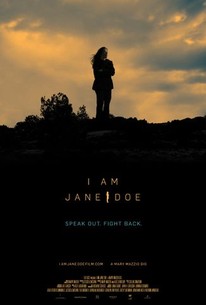 I Am Jane Doe, narrated by Jessica Chastain, charts the legal battles
between Backpage.com and American mothers whose underage daughters were sex trafficked on there.
Director Mary Mazzio combines the riveting story of those legal battles along with moving
testimonies from sex trafficking survivors who bravely express their feelings and recall their
experiences. Section 230 of the Communications Decency Act becomes an obstacle for the girls'
mothers because Backpage's lawyers use that provision to claim that they're not responsible for a
third party's actions because they have immunity. The mothers' lawyers argue that Backpage.com
were an active part in the pimping the girls and should be held responsible. Even though the
mothers lose court cases against Backpage goliaths, they continue to fight without giving up.
Backpage even had the nerve to provide potential pimps with advice on their classified ads
website to use certain kind of language to avoid being caught. It's alarming that our so-called
"justice" system would even remotely consider to protect moral corrupt corporations like
Backpage. Perhaps some of our own government members are among the underage prostitute's
clientele. I Am Jane Doe serves as an equally powerful, enraging and poignant exposé of underage sex trafficking, a human rights issue that's right under our noses here in America. Hopefully, it will encourage other
survivors to speak out, and serve as a cautionary tale for those who might end up being
sex trafficked. Just like last year's must-see doc, The Abolitionists, I Am Jane
Doe is a vital wake-up call that should be mandatory viewing for every high school student.
It opens at AMC Empire. 1 Night 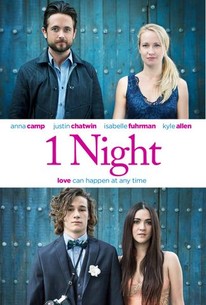 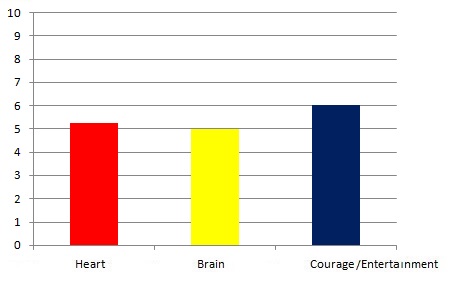 Chapter & Verse 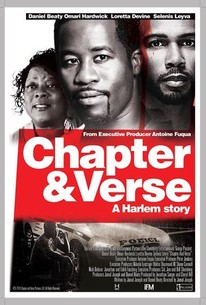 Lance (Daniel Beaty) returns to Harlem after serving 8 years in prison. He finds a job at a food pantry delivering meals to the needy. One of the customers whom he delivers meals to is Miss Maddy (Loretta Devine). She treats him with hostility at first, but they gradually form a friendship and she serves as his mentor. He helps to guide her teenage grandson, Ty (Khadim Diop), onto the right path instead of making the mistake of turning to a life of crime like he had done prior to prison. Meanwhile, he has to deal with the unwanted sexual advances of Yolanda (Selenis Leyva), his boss at the the food pantry. Omari Hardwick plays Lance's best friend, Jomo. The screenplay by writer/director Jamal Joseph and co-writer Daniel Beaty works best when it explores the relationship between Lance and Miss Maddy or Lance and Ty. Lance makes for a very interesting character because he's fallible and tough, but also vulnerable. He's likable, yet complex which makes him all the more compelling. Beaty gives an organic performance that tackles Lance's emotional truths convincingly. Joseph and Beaty find the right balance between light and dark tones. Although the subject matters that Chapter & Verse delve into are pretty dark and heavy, the screenwriters include just the right amount of comic relief as a form of levity and even a sliver of hope in the third act that's refreshingly understated and quietly powerful. Loretta Devine shines as she delivers some comic relief in her performance before a tragic revelation about her character rises to the surface. It's that revelation along with Yolanda's harassment toward Lance which overstuffs the film with too many conflicts which make the film seem like it's biting more than it could chew. Less is more. Lance's innate struggles have enough drama and "spectacle" to propel the film, so it doesn't really need all the intense subplots involving the supporting characters. Those flaws, though, aren't systemic, and there's just enough humanism and tenderness to be found throughout Chapter & Verse that makes it rise above your average drama.
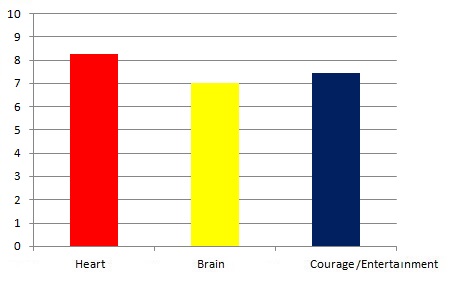 Don't Hang Up 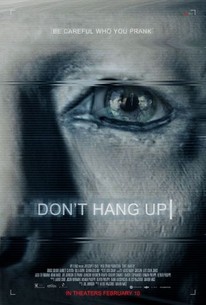 Sam (Gregg Sulkin) and his best friend, Brady (Garrett Clayton), spend an evening together drinking booze and making prank calls while posting them online. Mr. Lee (Parker Sawyers), one of the people they prank call, ends up turning the rest of their night into a living hell by threatening to kill them and their family. Screenwriter Joe Johnson keeps the plot lean with minimal character development. The premise sounds intruiging and the first act is promising, but the rest of the film fails to deliver because it runs out of creative steam and has too few surprises. Sam and Brady are rather annoying, shallow and not particularly bright characters---can't a horror thriller have at least one smart character or someone who the audience can feel an emotional connection with like in underrated The Final Girls or the classic Scream? The performance by Sulkin and Clayton are pretty decent, so at least there's that along with the slick and stylish cinematography to keep you mildly captivated. As Roger Ebert once wisely stated, horror films don't really need a big star because the horror itself is the star. In the case of Don't Hang Up, there aren't not enough truly scary moments. The third act falls apart like most horror films do with too many implausibilities and questions left hanging. To be fair most films have plot holes the more you think about them, but that could have been overlooked and forgiven for if there were any palpable scares, suspense or excitement. A horror film is also as good as it's villain, so the villain here, unfortunately, isn't interesting or memorable in any way. At least Don't Hang Up isn't nearly as inane, dull and asinine as The Bye Bye Man, but it's nonetheless mildly disappointing. 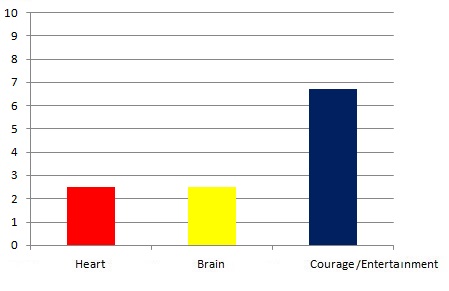 Duckweed  Lang (Deng Chao), a race car driver in 2022, wins a race, but admits that he doesn't have the one thing that he has always wanted in life: the support of his father, Zheng (Eddie Peng), who never believes in his dreams of become a racer. When he takes Zheng on a ride in his race car, he crashes the car and ends up travelling back in time to 1998 around the time that Zheng had met his mother, who died before he was still a baby. All he knows is that his mother's name is Suzheng and that he has to stop Zheng from falling in love with Hua (Liying Zhao) before it's too late and he won't exist. Although the plot synopsis above sounds somewhat similar to that of Back to the Future, Duckweed is a much more grounded and heartfelt film that focuses more on drama and character rather than comedy and action, although there is a subplot involving gangsters. When Hua develops feelings for Lang, the plot gets a bit complex, especially when somewhat cringe-inducing plot twist rises to the surface. Writer/director Han Han, fortunately, doesn't take that particular scene too far, but it does come close to a cringe-inducing scene in Back to the Future. He omits details of how the time travel happened exactly---there's no flux capacitor! At its core, though, Duckweed is a touching story about how a son gets to know his father and learns to overcome their dysfunctional relationship or at least he tries to understand him better. This would be a great film to watch for Father's Day. You'll have to see the film for yourself to learn the significance of the strange title. 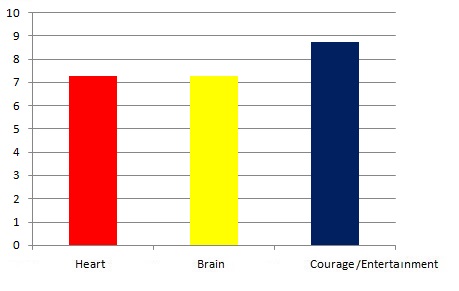 Fifty Shades Darker 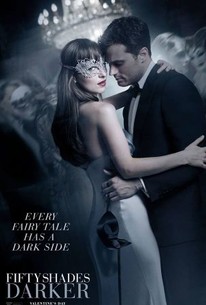 The screenplay by Niall Leonard, based on the novel by E.L. James, is awful from beginning to end. The dialogue sounds stilted, the plot becomes quickly implausible and silly, and it's nearly impossible to get inside the characters heads or care about them as human beings. Johnson and Dornan's wooden performances don't help matters, either. They lack chemistry, and their sex scenes look poorly-shot with awful editing and awkward choices for music that are more head-ache inducing than sexy. Although the set design looks lavish and the clothes look stylish, many scenes suffer from lethargy. Logic, reason, humanism, charisma, sexiness and wit get thrown right out of the window, especially in the third act. Don't be surprised if you'll laugh at some of the unintentional humor----it's not quite as hysterically funny as the bad laughs in The Room, but it comes pretty close. If Fifty Shades Darker were 30 minutes shorter or if it had some campiness, it could be recommended as a guilty pleasure, but at 2 hours it's far from a pleasure. It's one of the funniest unintentional comedy of the year, though. 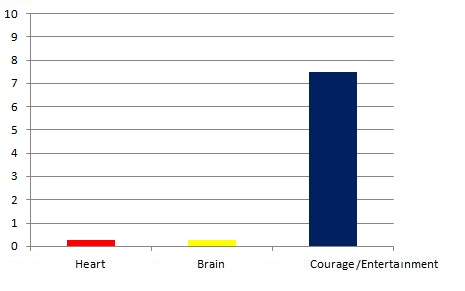 John Wick: Chapter 2 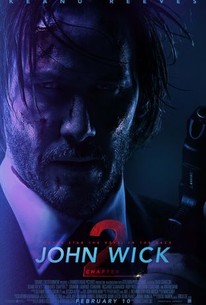 Just as he's about to retire from being a hitman, John Wick (Keanu Reeves) comes out of retirement when another assassin, Santino D’Antonio (Riccardo Scamarcio), arrives to collect a debt for saving Wick's life. Wick refuses to do so despite having sworn by a blood oath to repay it. To repay it, he has to kill Gianna (Claudia Gerini), D'Antonio's sister. Soon enough, Wick finds himself to be an assassination target while trying to avoid getting killed by Gianna's bodyguard (Common). Ian McShane reprises his role as Winston, the owner of The Continental, a hotel for assassins who are part of a secret group international group of assassins. Laurence Fishburne plays the pigeon-obsessed Bowery King. More fun than any of the recent James Bond or Jason Bourne films, John Wick: Chapter 2 is a rousing, action-packed white-knuckle thriller. It's a rush of pure adrenaline. The many action scenes are quite violent and bloody, but they're stylized and often come with tongue-in-cheek humor. If you try to use any kind of logic, like when it comes to a gunfight in front of the fountain at Lincoln Center without any police/security guards intervening or how John Wick survives an explosion early on, your sense of excitement and thrills might slightly dissipate. In other words, suspension of disbelief is a requirement, especially for an unabashed B-film like this one. Director Chad Staheliski, who also directed the first John Wick seems confident when it comes to directing action scenes with visual stylish set pieces many of which are memorable, i.e. a hall of mirrors. There's an indescribable poetry to the cinematography and use of color that has to be experienced to be grasped---even the death of Gianna rings with visual poetry. The choreography of the action scenes are superb. Although the screenplay by Derek Kolstad doesn't leave much for the imagination, it doesn't make your ears bleed like the dialogue in most B-action thrillers do. Fortunately, the filmmakers didn't resort to the temptations of shooting in 3D; 3D would've been a distraction. The few scenes with subtitles are easy to read with large, colored fonts reminiscent of the lively subtitles in Timur Bekmambetov's Night Watch. It's a testament to Kolstad's suspenseful screenplay, the skillful direction of Chad Stahelski and the charisma of Keanu Reeves that John Wick: Chapter 2 never has a dull moment throughout its 2-hour running time. John Wick is best role since Neo in The Matrix. Hopefully, there will be a third chapter in the John Wick series. 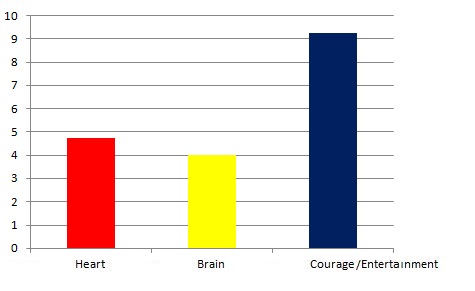 Land of Mine 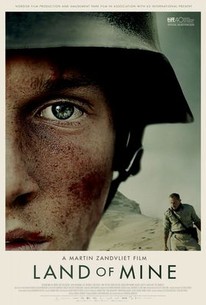 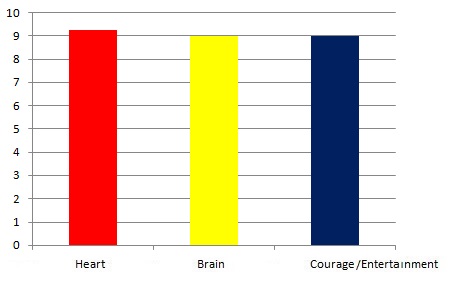 The LEGO Batman Movie 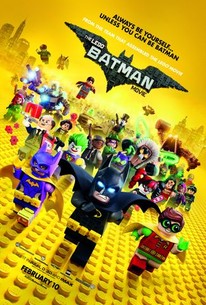 Batman (voice of Will Arnet) feels so sad and lonely that he won't even admit to the Joker (voice of Zach Galifianakis) that he's his archenemy. After he uses a device to project the Joker to a prison for supervillains called the Phantom Zone, the Joker steals the Phantom Zone Projector to free all of the jailed supervillains and have them attack Gotham City together. It's up to Batman and his son, Dick Grayson (voice of Michael Cera), police commissioner Barbara Gordon (voice of Rosario Dawson), his butler, Alfred (voice of Ralph Fiennes) and his adopted son, Dick Grayson (Michael Cera), to save Gotham City. If you enjoyed The LEGO Movie, you'll enjoy The LEGO Batman Movie even more. The jokes by screenwriters Seth Grahame-Smith, Chris McKenna, Erik Sommers, Jared Stern and John Whittington take a stab at many aspect of pop cultures, although the focus is mainly on spoofying superhero movies. Much of it feels like giddy fun from the very first frame which hooks the audience with a laugh-out-loud observation made by Batman via voice over before even the WB logo shows up. The plot doesn't take itself too seriously despite a few tender moments between Batman and his adopted son that grounds the film ever so slightly in realism. Batman actually has a character arc that can be somewhat relatable. Fortunately, those emotional scenes don't derail the film's momentum. Visually, much like The LEGO Movie, The LEGO Batman Movie looks dazzling with terrific use of CGI animation that makes it looks like stop-motion animation via real LEGOs. So much happens all at once with view few scenes that slow down. Blink and you'll miss some of the cameos, visual gags or pop cultural references that zip by, so repeat viewings are a must to catch every little bit of humor or satire. Kids will enjoy the animation and some of the humor, but there's also a lot for adults to keep adults entertained. This isn't the kind of film that resorts to the lowest common denominator; it has a heart, soul and brain beneath all of the spectactle. At a running time of 1 hour and 44 minutes, The LEGO Batman Movie is an exhilarating, subversive and hilarious adventure brimming with gleeful zaniness and razor-sharp wit. See it on the big screen with a large audience to maximize your enjoyment. 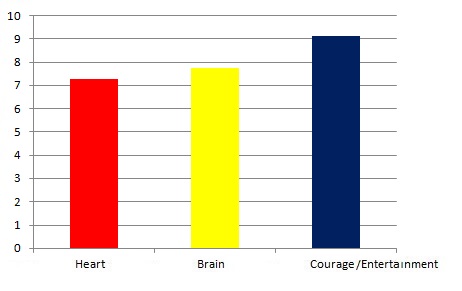 Sex Doll  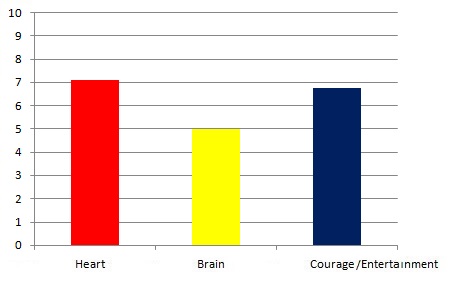 Stray Bullets 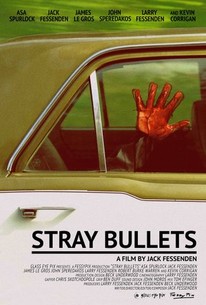 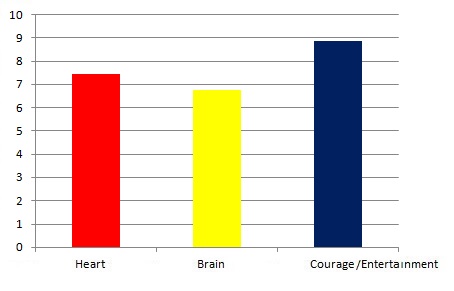 Main Page Alphabetical Menu Chronological Menu ______________________________________________________ |
The NYC Movie Guru
themovieguru101@yahoo.com
Privacy Policy